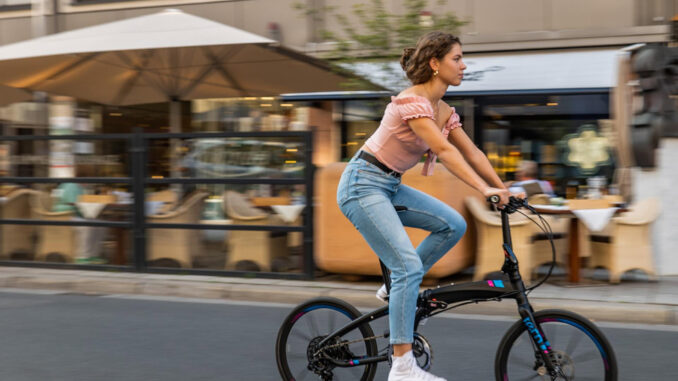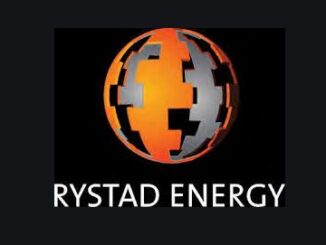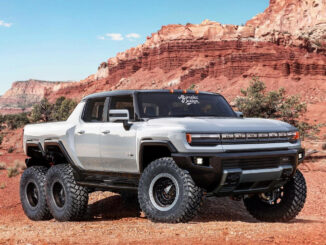
ENB Publishers Note: On the move to Carbon Net-Zero it makes sense that e-bicycles would be a great choice for local trips. I personally am not in favor of tax subsidies, but in this case, I think that there should be huge tax incentives to buy an E-bicycle. The key issue that Bloomberg Green brings out is the tax benefit will be in products over $3,500. That price point would not impact the most travelers and have the highest impact on the environment. Get the tax incentives to where students, young workers, and people needing good transportation would be able to afford them. That is a program I could get behind. And include the Dispraportantly Impacted Communities as affordable hybrid vehicles will be the best way to reach Carbon Net-Zero
Over the past decade, the U.S. has spent about $10 billion subsidizing the purchase of electric vehicles through tax credits. Not one penny of that, however, has gone to the world’s best-selling and fastest-growing form of an electric vehicle—a dynamic people-mover more efficient than any Tesla or Nissan Leaf. I’m referring, of course, to the electric bicycle.
But under the Build Back Better spending bill, which passed the House last month and awaits action in the Senate, e-bikes could, for the first time, get a push from the federal government. Tucked among its more than 2,000 pages is a tax credit of up to $900 for e-bikes.
If the incentive survives intact, e-bike makers, which lobbied for its inclusion, will be taking a (battery-assisted) victory lap. “Tables will have turned if this goes through,” says Mike Radenbaugh, chief executive officer of the startup Rad Power Bikes. “We think that e-bikes should ultimately see a much bigger set of support…but we’re really excited to see us at least heading in the right direction.”
It’s a major milestone for an industry that scarcely existed a decade ago. “The fact that there’s an e-bike incentive in a federal climate-slash-catch-all bill is remarkable considering that a few years ago a lot of folks didn’t know what e-bikes were,” says Christopher Cherry, a professor in the department of civil and environmental engineering at the University of Tennessee at Knoxville.
As it stands, the bill provides a credit of 30% for up to $3,000 spent on a new e-bike, excluding bikes that cost more than $4,000. (The credits also phase out according to household income beginning at $75,000 for a single taxpayer.) This is a comedown from the original proposal. In the bill that was introduced to the House, the credit covered 30% of spending up to $5,000 on bikes costing as much as $8,000.
“That was a blow for us,” says Steve Boyd, general manager of North America for Tern Bicycles, whose most expensive cargo e-bike costs more than $9,000. Under the original price cap, all but one of Tern’s models would have qualified; now all but a few are excluded. That low threshold, says Boyd, could steer some customers away from the best bike for their needs. None of Tern’s folding cargo e-bikes, for instance, costs less than $4,000.
The cuts to the credit were a natural part of the process of getting the bill through the House, says Noa Banayan, director of federal affairs at People for Bikes, a trade association that lobbies on behalf of bike makers. “Of course, we want the most amount of credit to be available to the most amount of people,” says Banayan, “but we are excited for anything that puts e-bikes on the federal map because we see it as just a first step.”
For Rad Power, which sells its e-bikes online at prices ranging from $1,000 to $2,000, the lower cap is a perfect fit. “Most e-bike companies will probably not see a huge benefit, but I think Rad’s an outlier in that way, ” says Radenbaugh. Data from the NPD Group, which tracks sales at bike shops and outdoor stores, show that e-bike purchases tend to cluster at the top and bottom of the scale. Almost 60 percent of bikes sold in the 12-month period ended in September cost either less than $500 or more than $3,500. The fastest growth, however, is happening in the middle: Unit sales of bikes between $1,500 and $2,000 grew at a rate of 176% over the previous 12 months in that same span.
There’s scant academic research, says Cherry, on how price effects consumer preferences in the e-bike market. He and his collaborator, John MacArthur of Portland State University, are currently working on a study that addresses these questions. In the absence of data, Congress is left to guess at the level of incentive that will convince the most people to buy e-bikes while spending as little as possible. “We don’t know what that sweet spot is,” says MacArthur.
For now, Congress seems to be taking the approach that it’s better to prevent a well-to-do weekend warrior from using the credit to buy a joyride than it is to help a potential cargo-bike customer get over their sticker shock. For some e-bike brands, that may mean adjusting prices to fit the tax code. “If the limits stay the same,” says Boyd at Tern, “and we have a bike that is going to work out normally at $4,200, then maybe we end up at $3,999.”






